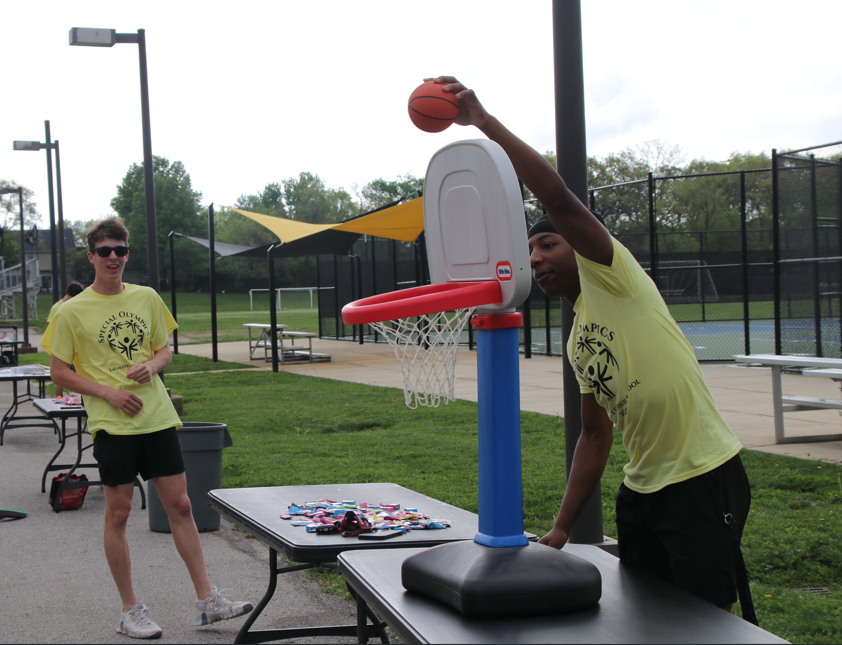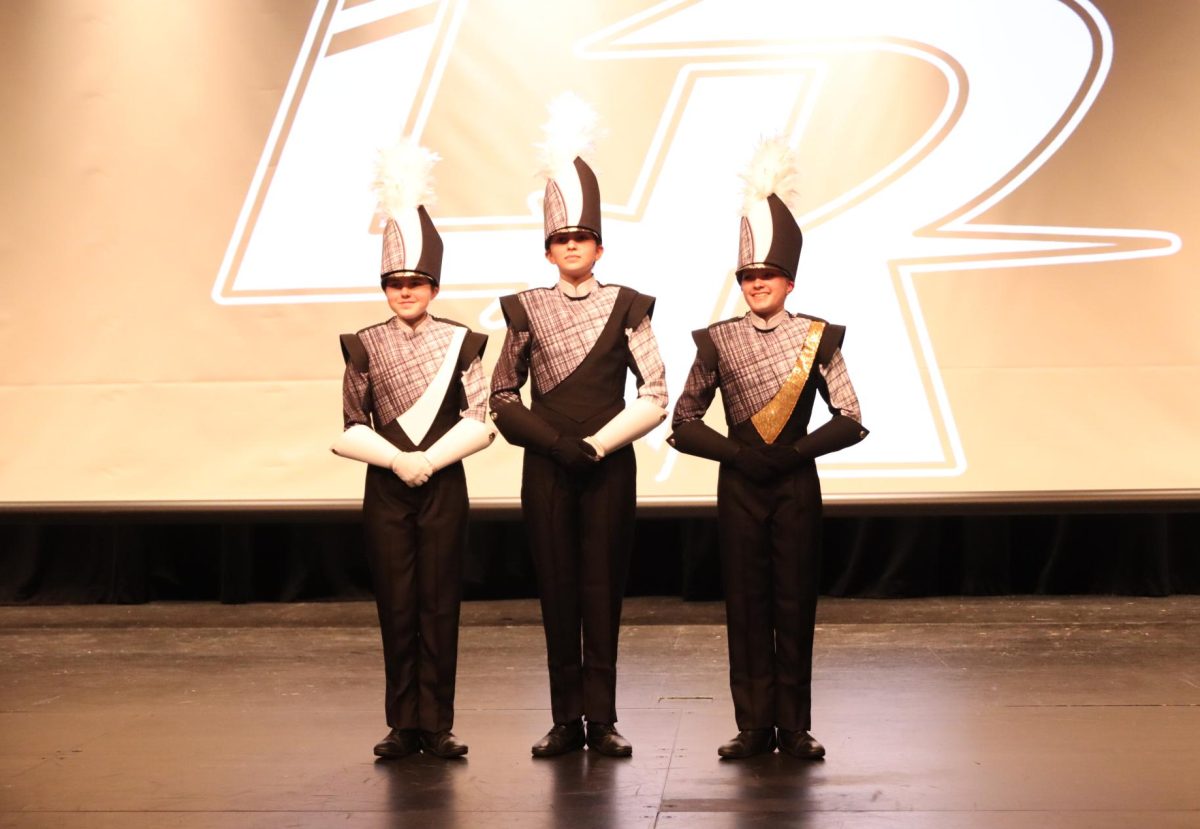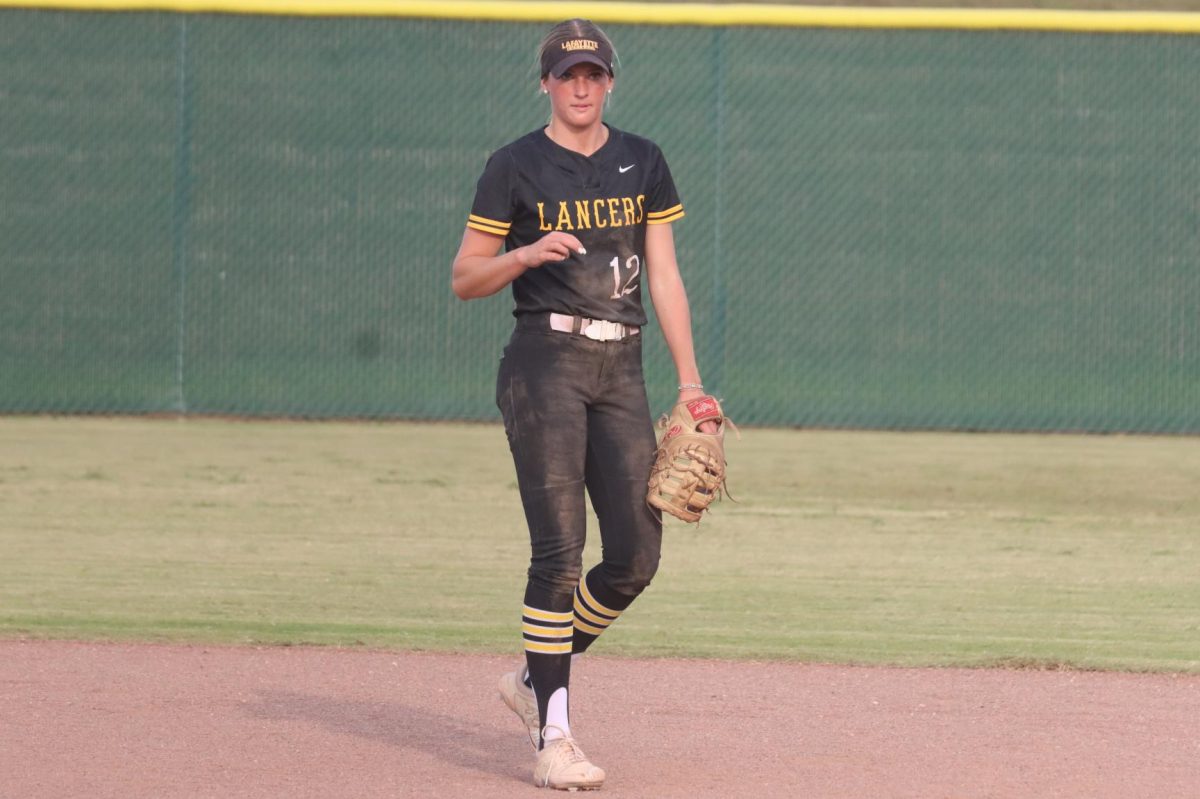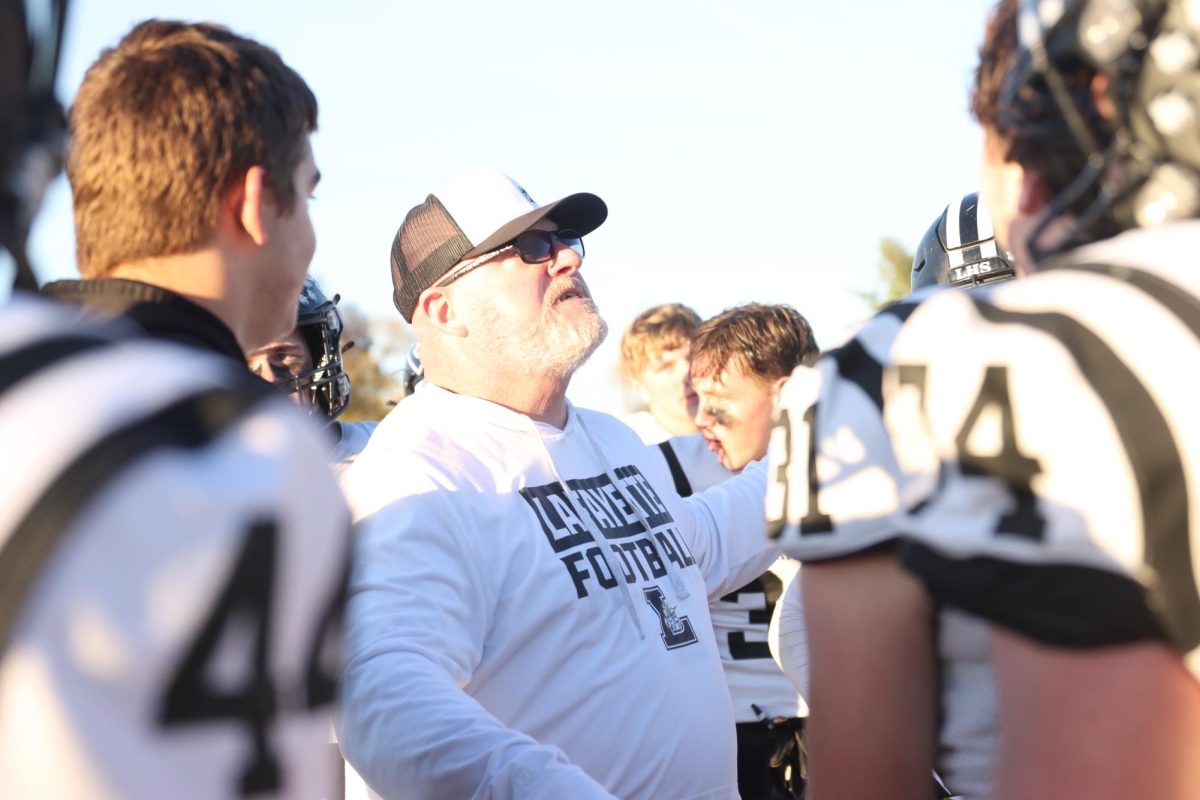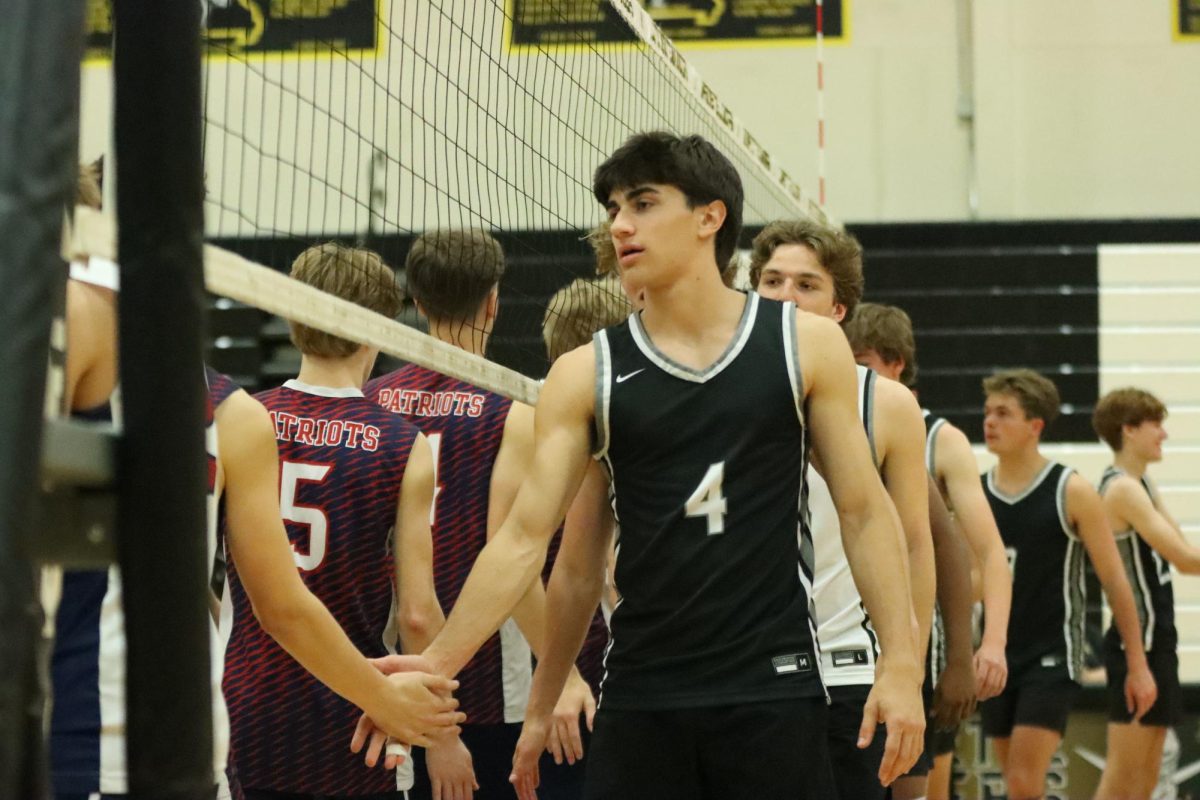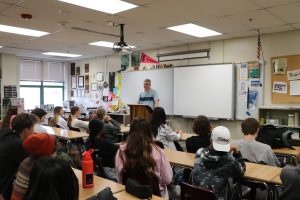If it weren’t for poetry
Language arts teacher David Choate brings passion for poetry to life in classroom
During his 6th Hour AP Literature and Compostion class on Dec. 2, language arts teacher David Choate works with the class to answer questions by annotating a passage from Jane Austen’s Pride and Prejudice.
December 6, 2021
“I used to teach a British Literature class and during that class, I would spend a week or more studying John Keats poetry with students. We would sing, take nature walks, stand on desks/tables, shout and just embrace his words and images. It is the poetry that kids remembered the most at the end of the year,” language arts teacher David Choate said. “His words matter and for kids about to embark on a journey of adulthood, I think many were able to resonate with his poetry because it spoke to them as they journey into the unknown and must make their own meanings out of life.”
As a language arts teacher, Choate has found ways to implement his favorite poets in his class curriculum for years.
Junior Grace Floretta is enrolled in Choate’s AP Literature and Composition class and sees his passion in every class.
“I can tell he has a passion for what he’s teaching because he’s the most energetic teacher and seems excited about everything he teaches. He’s always making everyone laugh and have a good time,” Floretta said.
Choate has found that since college, interpreting poetry, especially Robert Frost and John Keats, has become an avenue for expression in his life as well as a way to appreciate the world around him. Certain poets have also stuck out to him as favorites.
“There are so many poets that have inspired me: John Keats and his never-ending optimism in the face of adversity, William Wordsworth and his ability to find joy and solace in the most minute and seemingly simple details of life, John Donne and his clever, witty poems about relationships and faith, Tennyson and his ability to find and make connections between the past and the present and, of course, the greatest poet ever, Robert Frost, and his poems that teach his audience about life, love, death, nature and God,” he said. “The themes and ideas that run through their poems influence the way I choose to live my life.”
His passion doesn’t stop in the classroom and if it weren’t for poetry, he would never have deeply understood how to find the extraordinary in the ordinary.
“I believe that as we become consumed with making major contributions or long-term plans, we miss the beauty and simplicity that life offers. The reality is that we cannot achieve or do everything we want. As we focus on finding the perfect mate, the perfect life, the perfect job, we miss out on the power and meaning of a passing smile, seeing a kind act, watching the never-ending joy of a child playing, holding an embrace just a few seconds longer or even cherishing one last bite of sweet treat,” Choate said. “These simple moments are the moments that ultimately define us. It’s not a job, the college you attend, the car you drive or how much money that you make that creates happiness and meaning. It’s small, seemingly simple moments that define us. That is what both Keats and Frost preach or teach in their poems. Find the beauty in the simple and be content with the life you live.”




